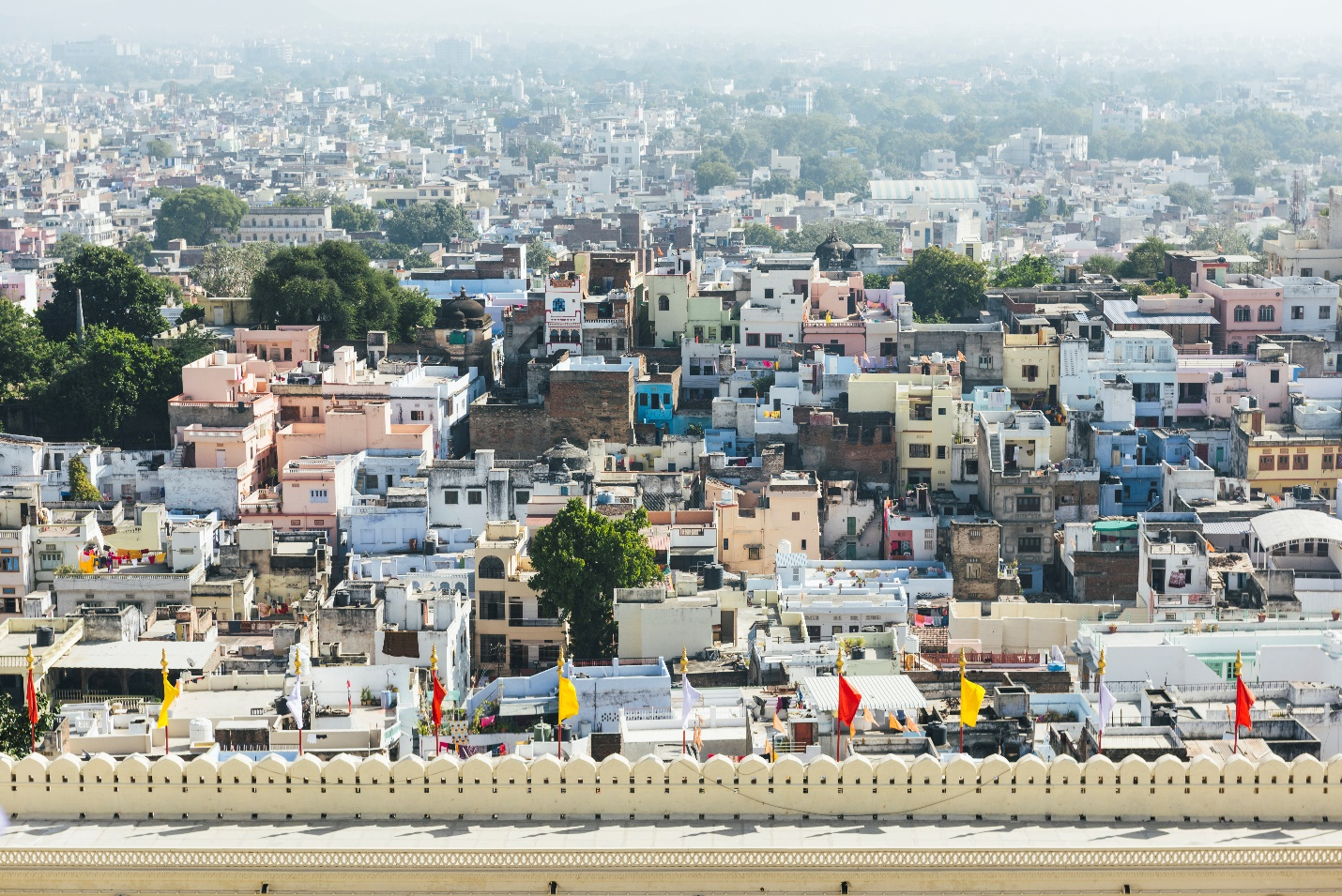India is the fourth-largest economy in the world and is projected to be the fastest-growing among major G20 countries, with GDP growth estimated at 6.9% in FY26. The food processing sector has emerged as one of the key contributors to this growth, supported by progressive policies of the Ministry of Food Processing Industries (MoFPI). The market is valued at Rs. 30,49,800 crore (US$ 354.5 billion) in 2024 and is expected to reach Rs. 65,24,480 crore (US$ 758.4 billion) by 2028, growing at a CAGR of 8.38% during 2025-33.
Exports remain a strong driver of the sector. Between April and August FY26, processed fruits and vegetables exports stood at Rs. 6,251 crore (US$ 729 million), animal products at Rs. 10,223 crore (US$ 1.19 billion), and other processed foods at Rs. 11,054 crore (US$ 1.29 billion). The total exports of floriculture, fresh and processed fruits and vegetables, animal products, cereals, cashew, herbal, and medicinal plants reached Rs. 59,118 crore (US$ 6.9 billion) during the same period.
The sector has also been attracting steady foreign investment. Between April 2000 and June 2025, it drew Rs. 1,15,596 crore (US$ 13.4 billion) in FDI, aided by favourable policies, tax benefits, and government schemes. Initiatives like the Production Linked Incentive Scheme for Food Processing Industry (PLISFPI), with an outlay of Rs. 10,900 crore (US$ 1.3 billion), and the PLI scheme for Millet-Based Products (PLISMBP), launched in FY23 with Rs. 800 crore (US$ 96 million) are expected to further accelerate growth and global competitiveness.
Infrastructure support has been another key focus. By June 2024, MoFPI had approved 41 Mega Food Parks, 399 Cold Chain projects, 76 Agro-processing Clusters, and 588 Food Processing Units under PMKSY schemes. As of FY25 (April-December 2024), 394 integrated cold chain projects were taken up, of which 286 were completed, creating 10.06 lakh MT of cold storage, 331 MT/hour of quick-freezing capacity, 190.98 LLPD of milk processing/storage, and 1,918 reefer vehicles.
The industry also benefits from India’s vast agricultural base. Diverse agro-climatic conditions provide a strong raw material supply for sub-sectors such as fruits and vegetables, poultry and meat, dairy, fisheries, grains, spices, nutraceuticals, and ready-to-eat segments. In 2022-23, horticulture production was estimated at 351.92 million tonnes, making India the second-largest producer of fruits and vegetables. It is also the world’s largest producer of spices, with 11.26 million tonnes of major spices produced that year.
India leads the world in milk production, contributing about 25% to global output in 2023-24. Milk production grew from 146.3 million tonnes in FY15 to 239.2 million tonnes in FY24, registering a 63.6% rise at an annual growth rate of 5.7%. Egg production grew at 6.58% CAGR from FY19 to FY24, while meat production rose at 4.8% during the same period, ranking India second in eggs and fifth in meat globally.
The Indian food and grocery market, the sixth largest in the world, contributes 70% through retail sales. The food processing industry alone accounts for 32% of this market, 13% of India’s total exports, and 6% of industrial investment. It employs nearly 1.93 million people in the registered sector and another 5.1 million in the unregistered segment.
Overall, the food processing sector has been growing at an average annual rate of 5.35% in recent years. Supported by a planned US$ 1 trillion infrastructure push and Rs. 25 lakh crore (US$ 300 billion) investment into the rural economy, the sector is well-positioned to remain one of the strongest pillars of India’s economic growth.
The food processing sector has seen some major developments, investments, and support from the Government in the recent past.
- In July 2025, the Union Cabinet approved an additional outlay of Rs. 1,920 crore (US$ 219 million), taking the total allocation for the PMKSY to Rs. 6,520 crore (US$ 745 million) for the Fifteenth Finance Commission cycle, valid up to March 31, 2026. The approval includes Rs. 1,000 crore (US$ 114 million) for setting up 50 Multi-Product Food Irradiation Units under the Integrated Cold Chain and Value Addition Infrastructure (ICCVAI) component.
- India is boosting turmeric exports via the SPICED scheme, which includes quality certification, value-addition support, post-harvest upgrades, and domestic & international market linkage programs under the newly formed National Turmeric Board.
- APEDA has launched the BHARATI (Bharat's Hub for Agritech, Resilience, Advancement, and Incubation for Export Enablement) initiative to empower 100 agri-food and agri-tech startups, foster innovation, improve export readiness and help India achieve Rs. 4,28,450 crore (US$ 50 billion) in agri-food exports of its scheduled products by 2030.
- In a major boost to the dairy industry, India’s iconic dairy brand, Amul has announced setting up the world’s largest curd (dahi) manufacturing facility in Kolkata. This new integrated dairy plant, backed by Rs. 600 crore (US$ 69.1 million) investment will significantly expand Amul’s footprint in West Bengal.
- The Ministry of Food Processing Industries (MoFPI) was allocated Rs. 4,364 crore (US$ 505.70 million) in the Union Budget 2025-26.
- Pradhan Mantri Kisan Sampada Yojana (PMKSY) budget was allocated Rs. 729 crore (US$ 84.50 million). The food processing industry's Production-Linked Incentive Scheme was allocated Rs. 1,444 crore (US$ 167.30 billion) to promote innovation in the sector.
- An outlay of Rs. 2,000 crore (US$ 231.80 million) was allocated towards the Prime Minister Formalization of Micro Food Processing Enterprises Scheme (PMFME).
In the Interim Budget 2024-25, the Ministry of Food Processing Industries was allocated a total Budget of Rs. 3,290 crore (~US$ 396 million), an increase of ~13% over revised estimates for fiscal year 2024.
PLI Scheme for Food Processing Industries (PLISFPI) had 170 applications approved up to September 2025, increasing food processing capacity by 35.00 lakh MT per annum, generating about 3.39 lakh direct and indirect jobs and boosting exports of processed food with a 13.23% CAGR since 2019-20.
An outlay of Rs. 879.5 crore (~US$ 105.8 million) was allocated towards the centrally sponsored schemes including the Prime Minister Formalization of Micro Food Processing Enterprises Scheme (PMFME).
The Mega Food Park (MFP) Scheme was launched to integrate agricultural production with the market by bringing together farmers, processors, and retailers. The scheme follows a cluster approach, establishing modern food processing units within well-defined agri/horticultural zones.
Each park includes supply chain infrastructure like collection centres, processing units, and cold chains, along with developed plots for entrepreneurs. Under the MFP scheme 41 projects were approved, of which 24 are operational as of December 2023.
The Ministry of Food Processing Industries hosted ‘World Food India’ event, in November 2023, in New Delhi. The event provided a distinctive platform to all the stakeholders in the food value chain including food processors, equipment manufacturers, producers, cold chain players, technology providers, logistics players, researchers, start-ups and innovators, food retailers etc. to engage and demonstrate their capabilities.
The United Nation’s General Assembly (UNGA) declared 2023 as the International Year of Millets. The Union Budget 2023-24 included a special focus on millet, highlighting the aspirations to make India a Global Hub for Millets (Shree Anna).
During the Presidency of G20 summit, India had organized a two-day Global Millets Conference in March 2023 in New Delhi bringing together participants from more than 102 countries facilitating discourse on important issues related to millets, including its production, consumption, nutritional benefits, value chain development, market linkages, and research and development.
The Indian Institute of Millets Research in Hyderabad was declared as a Centre of Excellence for sharing best practices, research, and technology at national and international level.
The Indian food processing sector offers a promising growth journey ahead and presents several opportunities with the sector being recognised as a key priority industry under the “Make in India” initiative. The MoFPI has undertaken several initiatives aimed at enhancing infrastructure and fostering food processing industries to stimulate investment in this domain. The Indian Government has sought to involve multiple stakeholders to improve interactions between farmers, processors, distributors, and retailers to establish strong supply chains linking farmers to processing and marketing to empower them with nearby grading and storage facilities which will enhance the value of their products.
There are substantial investment prospects totalling US$ 2.36 billion across 31 projects under Common Infrastructure for Industrial Parks which includes facilities such as specialized processing units, effluent treatment plants, testing laboratories, common warehouses, and logistics support. These facilities are designed to support the industry's manufacturing processes and ensure compliance with environmental regulations while promoting efficient production and export capabilities.
The food processing sector in India boasts over 3,300 recognized startups, employing 33,000 people and spread across 425 districts. Supported by incubators, accelerators, and funds, startups hold immense potential to drive innovation and economic growth in the food processing industry. There are several food and agriculture value chain funds like the Startup India Seed Fund Scheme, Startup India Tax Exemption Benefits, etc. that support the startups in the food processing industry.
World Food India 2025, hosted by the Ministry of Food Processing Industries and inaugurated by Prime Minister Mr. Narendra Modi, was announced as a flagship international event from September 25 to 28, 2025, in New Delhi to position India as a Global Food Hub with participation from over 90 countries and 2,000 exhibitors, highlighting India’s production scale and global investment prospects in food processing.
India’s food processing sector stands as a vital pillar of the nation’s growth journey, supported by robust government initiatives, expanding infrastructure, and rising global demand. With strong export momentum, increasing foreign investments, and growing startup participation, the industry is poised to unlock immense value across the agri-food value chain. Continued focus on innovation, sustainability, and inclusive rural development will further enhance its global competitiveness. Looking ahead, the sector is well-positioned to strengthen India’s role as a global hub for high-quality, value-added food products, driving employment, empowering farmers, and contributing significantly to the vision of a developed India by 2047.
References: Ministry of Food Processing Industries (MoFPI), Press Information Bureau, Nivesh Bandhu Investor Portal, Source: Agricultural & Processed Food Products Export Development Authority (APEDA), News Articles, Department for Promotion of Industry, and Internal Trade (DPIIT), Union Budget 2025-26, Union Budget 2023-24, Interim Budget 2024-25, Grant Thornton - Viksit Bharat by 2047: Role of the food processing sector, India Investment Grid, Startup India.
Note: Conversion rate used in October 2025, Rs. 1 = US$ 0.011












